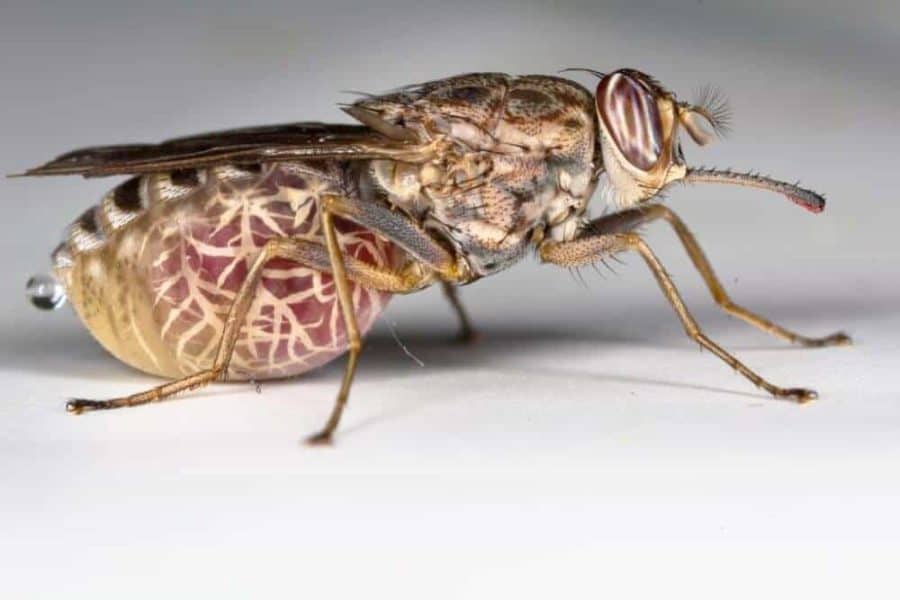Sponsored Post: Trypanosomiasis, more commonly known as “sleeping sickness,” is a parasitic infection spread by pesky tsetse flies among animals and farmers in rural areas of Africa. The blood-borne protozoa can require constant human and TEGO card livestock testing to detect the disease early on, if farmers can afford testing at all. Recent tactics developed at the Center for Development Research at the University of Bonn have figured out a way to trick the tsetse fly into staying away from precious livestock in a unique way; making them smell like a particular breed of local antelope.
Tired Of Sleeping Sickness
Sleeping sickness affects livestock and the farmers that tend to them in the form of a nasty parasitic infection spread by the bite of the Glossina genus of the tsetse fly that are common in rural areas of Africa. Trypanosoma brucei gambiense is the most common form transmitted to humans, and can rampage through a host devoid of visible symptoms for months, or years, before showing itself.
Sleeping sickness is so deadly because of its latent quality; by the time the commonly associated symptoms show themselves, the disease is already in its later stages, where it affects the host’s central nervous system and causes a drowsy state (where the disease gets its nickname).
Left untreated, sleeping sickness is fatal in humans and livestock, with infected individuals allowing the disease to spread through local populations like wildfire due to subsequent tsetse fly bites. The vector-borne disease has caused multiple epidemics in sub-Saharan Africa, with the most recent coming to a merciful end in the 1990s. The subsequent economic and ecological effects caused by the disease are estimated to be around 4.6 billion U.S. dollars every year.
A Smelly Solution
Waterbuck antelope are naturally resistant to tsetse fly bites due to their smell; the disease carrying arthropods find it absolutely repulsive. Through the team effort of researchers from the International Center of Insect Physiology and Ecology, the Interafrican Bureau for Animal Resources and Rothamsted Research, Harpenden, the University of Bonn was able to isolate and synthesize the natural repellent from Waterbucks; filling plastic tubes with the substance to be attached to livestock’s collars.
In a two year field study conducted with the cooperation of Maasai farmers, the “antelope perfume” was 80 percent effective in preventing the disease in livestock, attributing to healthier cattle and happier farmers. Farmers featured in the study reported that livestock was heavier, healthier, produced more milk, and plowed more land when taking part in the olfactory assault against their winged assailants.
The Fly Free Future
With the repellent able to be cheaply produced and distributed, the future for sub-Saharan livestock, and the farmers that make their living off of them, is brighter than ever. Whether a human variant of the repellent will be developed at some point for widespread use for the millions of people that inhabit the affected areas remains to be seen, but with the study’s widespread success with livestock, the concept doesn’t seem to be too farfetched.
Considering that sleeping sickness hasn’t received the star studded treatment that other infectious diseases that ravage Africa has (not making recent headlines and prompting worldwide effort), it’s refreshing to see an accessible, cheap, and effective method emerge from the local University of Bonn; meaning distribution won’t be a massive undertaking. It’ll be interesting to see if this unique style of olfactory camouflage can be used to ward off other arthropod vector-borne diseases, whether they affect people or animals.
Sources:

